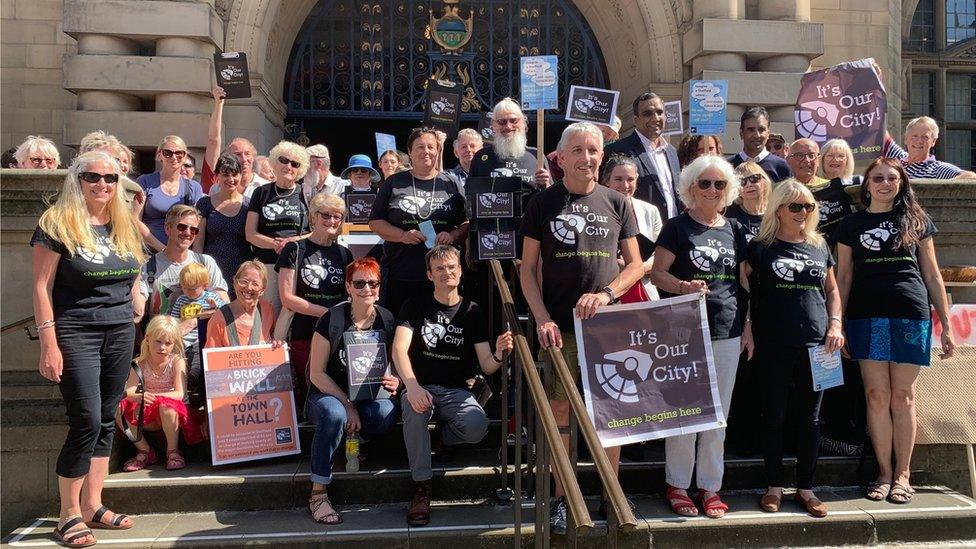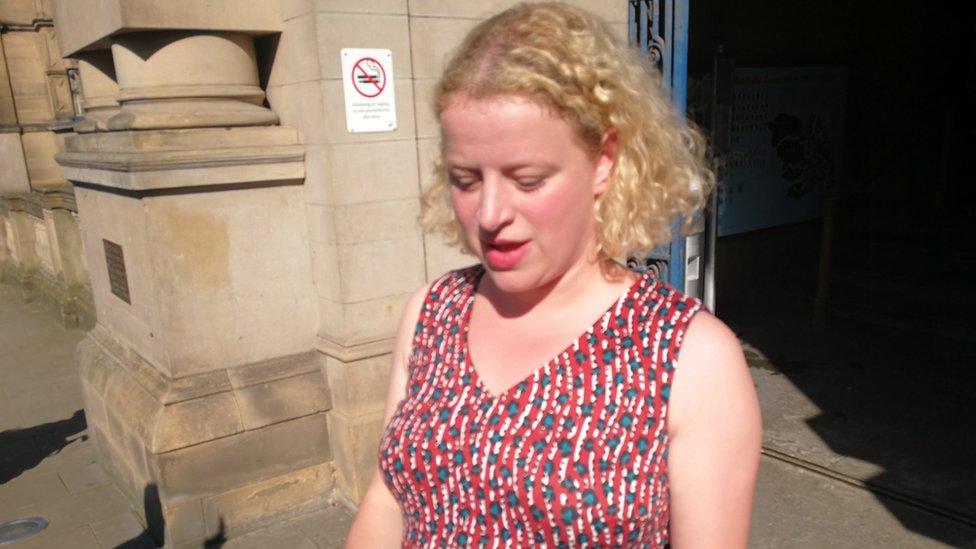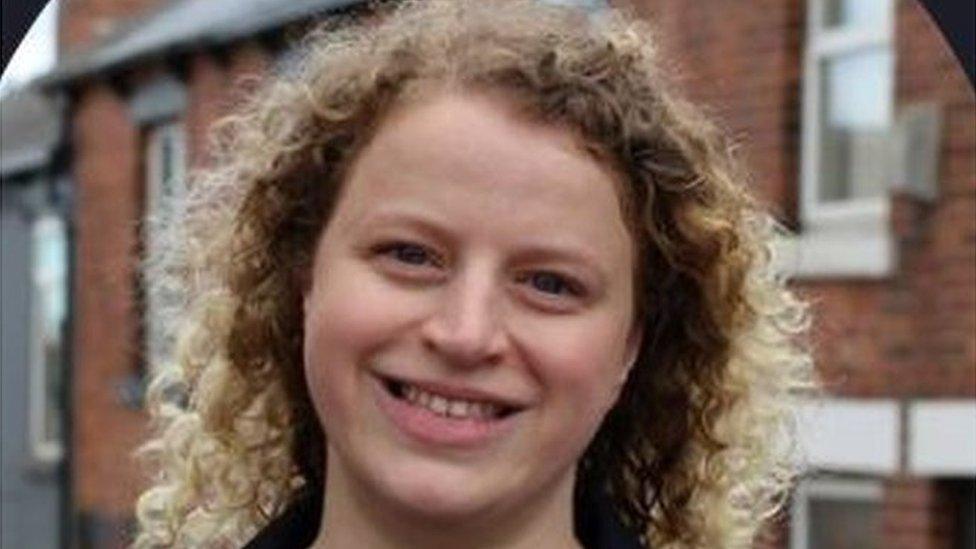Democracy petition forces Sheffield to hold referendum
- Published

A petition was handed in at Sheffield Town Hall by members of It's Our City
Sheffield residents are set to vote in a referendum on whether to the city council should be run in a different way.
It's Our City launched a petition in 2018 calling on the city to switch to the Modern Committee System, instead of its current Strong Leader Model.
The petition reached 26,000 signatures, meaning the council must hold a city-wide referendum on whether to switch.
The council said the vote will be held on or before local elections in May.
Legally, the council must publish proposals for a new operating model within six months of the referendum date.
Campaigners said if people vote for the MCS, it would mean more voices will be heard - but council leader Julie Dore believes the current system is fine.
The council said it was "developing options" for the city's MCS, with a report due within six months.
Councillor Terry Fox, deputy leader, said the review would include input from a cross-party group of councillors and stakeholders, to help inform the proposals for how a committee system could work.

The council's ex-deputy leader Olivia Blake added her name to the "democracy" petition and resigned from the council cabinet in August
The petition prompted several councillors, including ex-deputy leader Olivia Blake, to resign from the cabinet last month saying it was clear people want more "democracy" in Sheffield.
Woll Newall, from It's Our City, said Sheffield Council should have already sought expert advice on how to switch to a MCS in case a referendum was triggered.
The petition needed 20,092 signatures to trigger a local referendum, external - but exceeded that with nearly 6,000 more names.

The Strong Leader Model
This is Sheffield Council's current operating a Strong Leader Model, where the majority party chooses a leader; in this case, Julie Dore.
Ms Dore chose nine councillors (out of the city's 84 elected councillors) to hold portfolios for areas such as Transport, Housing and Environment in the cabinet.
It's Our City said the nine cabinet councillors do not have to be from the same political party, although in Sheffield they always have been.
The cabinet has the power to make key decisions for the city, but legally the leader can override them.
Many people feel this model means the views of many councillors and constituents go unrepresented.

Modern Committee Systems
It's Our City said Sheffield should move to a MCS because it would mean more voices can be heard.
Each council designs its MCS according to its needs, and does not have to follow other authority models.
The campaigners said Sheffield could have eight or nine councillors in a small committee for each portfolio, with experts and representatives from voluntary and community organisations also appointed - for example, a homelessness charity could make representations to the housing committee.
Brighton and Reading are already using a MCS, while Chester East is adopting one after "years" of talks to design a suitable model.
Mr Newall, from It's Our City, said for democracy's sake the chair of each committee does not have to be from the same political party as the other councillors, and if adopted it would mean "more input from the people who know most about an issue".
The MCS is different from the old committee system that was used by councils before 2001.

Follow BBC Yorkshire on Facebook, external, Twitter, external and Instagram, external. Send your story ideas to yorkslincs.news@bbc.co.uk, external.
- Published27 August 2019

- Published23 August 2019
